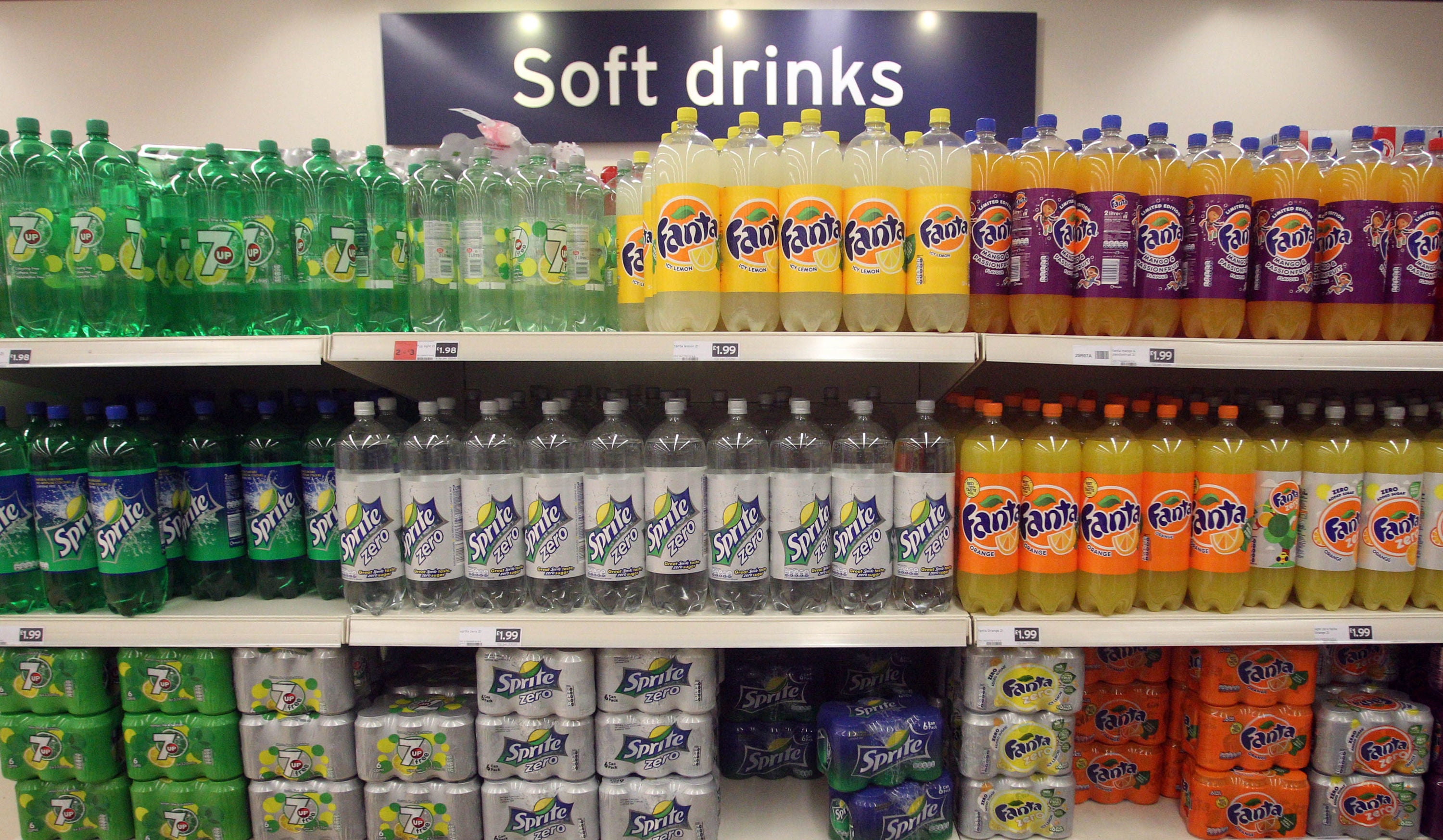Consumption of sugar from soft drinks fell in the year after sugar tax brought in
The volume of soft drinks bought remained the same but the amount of sugar in those drinks fell by 10 per cent

Your support helps us to tell the story
From reproductive rights to climate change to Big Tech, The Independent is on the ground when the story is developing. Whether it's investigating the financials of Elon Musk's pro-Trump PAC or producing our latest documentary, 'The A Word', which shines a light on the American women fighting for reproductive rights, we know how important it is to parse out the facts from the messaging.
At such a critical moment in US history, we need reporters on the ground. Your donation allows us to keep sending journalists to speak to both sides of the story.
The Independent is trusted by Americans across the entire political spectrum. And unlike many other quality news outlets, we choose not to lock Americans out of our reporting and analysis with paywalls. We believe quality journalism should be available to everyone, paid for by those who can afford it.
Your support makes all the difference.People have been drinking less sugar in their soft drinks since the sugar tax was brought in, despite continuing to buy the same amount, according to research.
The tax was introduced in April 2018, with manufacturers of soft drinks containing more than 5g of sugar per 100ml forced to pay a levy of 18p a litre to the Treasury, or 24p a litre for sugar content over 8g per 100ml.
Researchers at Cambridge University found, when looking at data for the following year, the amount of sugar consumed fell by 10 per cent, or 29.5g despite the overall volume of beverage purchased remaining the same.
The government and health campaigners hoped the higher prices would encourage people to buy less sugary drinks, while some manufacturers changed their formulas to cut down on sugar.
The study compared weekly purchasing data in March 2019 with an estimate, based on pre-existing trends, of how purchases would have looked that month without the sugar tax.
Dr David Pell, from Cambridge's Centre for Diet and Activity Research (Cedar), said: “A 10-per-cent drop in the amount of sugar purchased from soft drinks might sound modest, but we know there's an association between the amount of sugar drinks we consume and the risk of developing conditions such as obesity, type 2 diabetes and high blood pressure.
“Cutting out even a relatively small amount of sugar should have important impacts on the number of people with obesity and diabetes.”
Sales of the most sugary drinks, containing more than 8g of sugar per 100ml, dropped by 155ml (44 per cent) per household per week by March 2019, with 18g less sugar (a 46-per-cent decrease).
For less sugary drinks, containing between 5g and 8g of sugar per 100ml, volumes dropped by 177ml (86 per cent) per household per week, with the amount of sugar falling by 12.5g (an 86-per-cent drop).
But there was no change in the volume of drinks sold with less than 5g of sugar per 100ml, which have no levy, although some manufacturers increased their sugar content.
With all soft drinks combined, the volume of drinks purchased was the same, but sugar decreased by 29.5g, according to the research.
Professor Martin White, also from Cedar, said: “The Soft Drinks Industry Levy appears to have led to a reduction in the amount of sugar that people are purchasing in soft drinks without impacting on the overall volume of soft drinks sold.
“It's likely that this is due to manufacturers reformulating their products and reducing the sugar concentration in their drinks, as well as to consumers switching to lower sugar alternatives.
“This represents a valuable win-win for public health and the food industry - potentially improving people's health with no detrimental effect on the volume of soft drinks that companies are selling.”
Researchers analysed data from market research company Kantar Worldpanel, which asked households to keep a record of their weekly food and drink purchases.
Additional reporting by agencies



Join our commenting forum
Join thought-provoking conversations, follow other Independent readers and see their replies
Comments